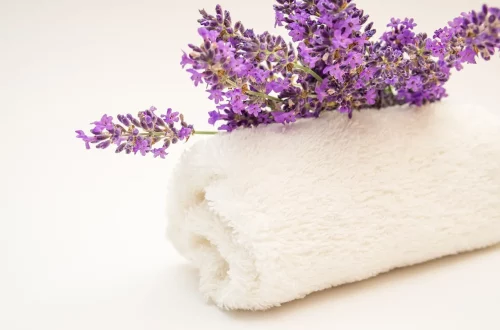
The Ultimate Guide to Puppy Chew Sticks for Healthy Teeth and Fun
Puppies are undeniably one of life’s greatest joys. Their playful antics and boundless energy can brighten even the dullest of days. However, as any pet owner knows, caring for a puppy involves a myriad of responsibilities, one of which is ensuring their dental health. Just like humans, dogs require regular dental care, and neglecting this aspect can lead to a range of health issues down the line.
One effective way to promote good dental hygiene in puppies is through the use of chew sticks. These treats not only satisfy a puppy’s instinctual need to chew but also help clean their teeth as they gnaw away. With various options available on the market, it can be overwhelming for pet owners to choose the right chew sticks that are both safe and beneficial for their furry friends.
This guide aims to provide valuable insights into the world of puppy chew sticks, emphasizing their importance, types available, and tips on selecting the best options for your canine companion. By understanding the benefits of chew sticks and incorporating them into your puppy’s routine, you can ensure that their teeth remain healthy while also providing them with endless fun.
Benefits of Chew Sticks for Puppies
Chew sticks offer a multitude of benefits that go far beyond just keeping your puppy entertained. One of the primary advantages is their role in promoting dental health. As puppies chew on these sticks, they help to mechanically remove plaque and tartar buildup from their teeth. This natural cleaning action can significantly reduce the risk of gum disease and other dental issues, which are common in dogs.
In addition to dental benefits, chew sticks can also serve as an excellent way to satisfy a puppy’s natural chewing instinct. Puppies are naturally inclined to explore their environment with their mouths, and providing them with appropriate chew toys can prevent them from turning to furniture, shoes, or other household items. This not only keeps your belongings safe but also helps to redirect their energy into something constructive.
Moreover, chew sticks can contribute to mental stimulation. Chewing is an engaging activity that can keep a puppy occupied for extended periods. This is particularly important for high-energy breeds that require plenty of physical and mental exercise. By providing chew sticks, you’re not only aiding in their dental health but also helping to prevent boredom, which can lead to destructive behaviors.
Another noteworthy benefit is the potential for flavor variety. Many chew sticks come infused with enticing flavors that can make them more appealing to your puppy. This can encourage them to chew more frequently, further enhancing their dental hygiene while providing a tasty treat.
Lastly, chew sticks can be a great bonding experience for you and your puppy. Engaging with them during chew time, whether it’s through play or simply being present, strengthens the emotional connection you share. This interaction can foster a sense of security and trust, making for a well-adjusted puppy.
Types of Chew Sticks Available on the Market
When it comes to chew sticks, the variety available can be overwhelming. However, understanding the different types can help you make informed choices for your puppy.
One popular category is rawhide chew sticks. These are made from the inner layer of cow or horse hides and are known for their durability. Rawhide sticks can keep puppies busy for hours, but it’s essential to monitor them while chewing, as small pieces can break off and pose a choking hazard.
Another option is dental chew sticks specifically designed to promote oral health. These often contain ingredients that help reduce plaque and tartar while freshening the puppy’s breath. Brands may infuse these sticks with enzymes or other dental aids to enhance their effectiveness.
Vegetable-based chew sticks are also gaining popularity, especially among health-conscious pet owners. Made from ingredients like sweet potatoes or carrots, these sticks provide a nutritious alternative to traditional options. They are often lower in calories and can be a great option for puppies that may be prone to weight gain.
For those looking for a more natural option, consider chews made from animal bones or antlers. These are typically long-lasting and can provide essential nutrients as puppies chew. However, it’s crucial to ensure that they are appropriately sized and not too hard, as this can lead to broken teeth.
Finally, there are synthetic chew sticks crafted from materials designed to mimic the texture and flavor of real bones or meat. These can be a good option for puppies with sensitive stomachs, as they often don’t contain common allergens found in natural chews.
Choosing the right type of chew stick for your puppy depends on their age, size, and chewing habits. Always consult with your veterinarian if you’re unsure which option is best suited for your furry friend.
How to Choose the Right Chew Stick for Your Puppy
Selecting the right chew stick for your puppy is crucial for ensuring their safety and enjoyment. Here are several factors to consider when making your choice.
First and foremost, consider the size of your puppy. Chew sticks should be appropriately sized to prevent choking hazards. A stick that is too small can easily be swallowed whole, while one that is too large may be difficult for a puppy to handle. Always refer to the manufacturer’s guidelines regarding size recommendations based on your puppy’s weight and breed.
Another important consideration is the ingredient list. Opt for chew sticks made from high-quality, natural ingredients without artificial additives or preservatives. This is particularly essential for puppies with food sensitivities or allergies. Look for brands that provide transparency regarding their sourcing and manufacturing processes.
You should also evaluate the chew stick’s durability. Puppies have varying chewing habits—some may be aggressive chewers while others are more gentle. If your puppy is known for destructive chewing, select a tougher chew stick designed for heavy chewers. Conversely, if your puppy is more laid-back, a softer option may suffice.
Additionally, pay attention to the flavor and odor of the chew sticks. Puppies are often more likely to chew on products that appeal to their taste buds. However, be cautious about overly strong smells, as they may indicate artificial flavoring or preservatives that could upset your puppy’s stomach.
Lastly, always monitor your puppy while they enjoy their chew sticks. Supervision is key to ensuring they don’t swallow large pieces or become overly aggressive in their chewing. Regularly inspect the sticks for wear and tear, and replace them when they become too small or damaged.
By taking the time to choose the right chew stick, you can ensure a safe and enjoyable experience for your puppy while promoting their dental health.
Tips for Incorporating Chew Sticks into Your Puppy’s Routine
Integrating chew sticks into your puppy’s daily routine can be beneficial for both their dental health and overall well-being. Here are some practical tips for making the most of chew sticks.
Start by establishing a designated chew time. Setting aside specific times during the day for chewing can help your puppy associate chew sticks with positive experiences. This can also help manage their energy levels, giving them an outlet for their natural chewing instincts.
Consider using chew sticks as a reward during training sessions. Positive reinforcement is an effective training technique, and giving your puppy a chew stick as a reward for good behavior can encourage them to repeat those behaviors. Just be mindful of the quantity, as overindulgence can lead to weight gain.
To make chew time more engaging, you can incorporate interactive play. For instance, toss a chew stick for your puppy to fetch or hide it in a safe place for them to find. This not only adds an element of fun but also encourages mental stimulation.
Furthermore, vary the types of chew sticks you offer. Just as with any treat, puppies can get bored with the same flavor or texture. By providing a mix of options, you keep their interest piqued and ensure they receive a range of benefits from different ingredients.
Lastly, always keep an eye on your puppy’s chewing habits. If you notice any signs of discomfort, such as excessive drooling or reluctance to chew, consult your veterinarian. This can help address any underlying issues and ensure your puppy continues to enjoy their chew sticks safely.
In conclusion, chew sticks are a valuable addition to your puppy’s dental care routine. They offer numerous benefits, from promoting oral hygiene to providing mental stimulation and engagement. By choosing the right type of chew stick and incorporating them thoughtfully into your puppy’s life, you can help ensure they are both healthy and happy.
*Please note that this article is not intended as medical advice. Always consult with your veterinarian for any health-related concerns regarding your pet.*




